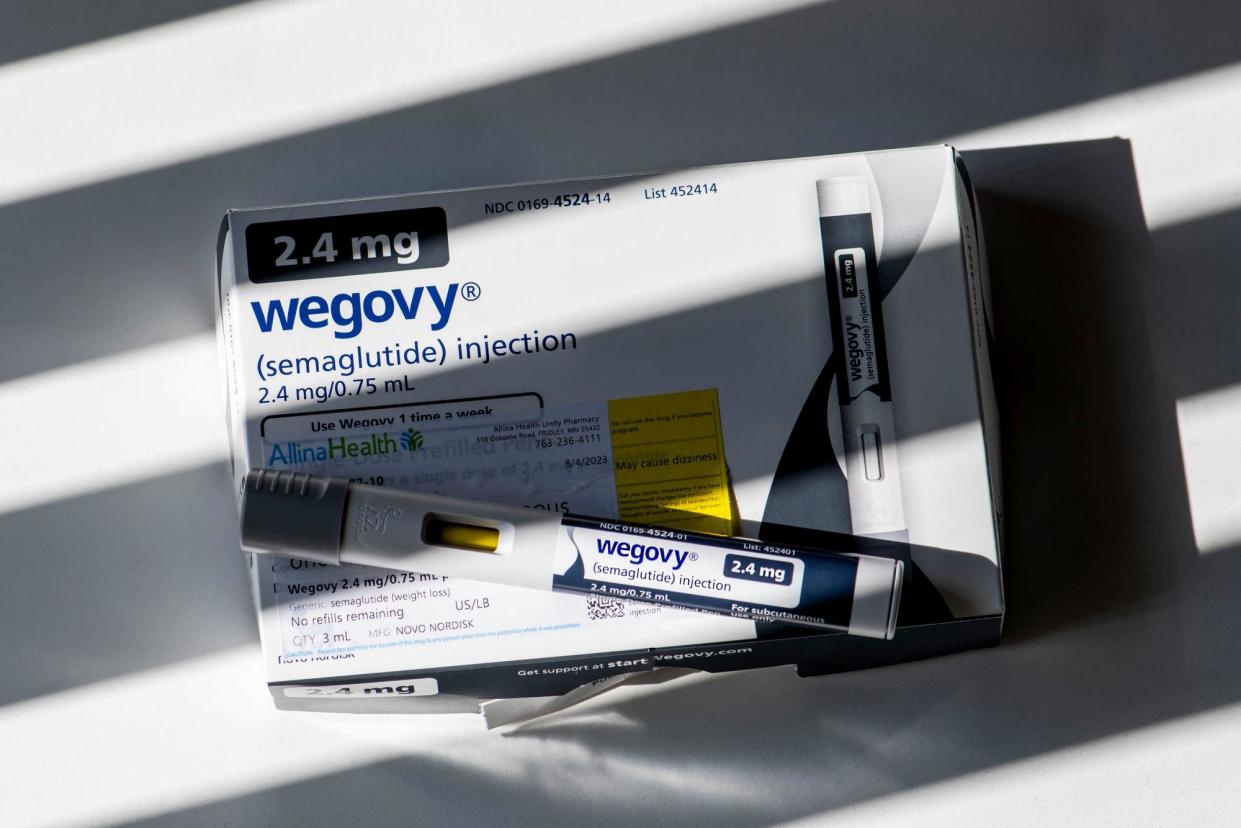Weight-loss drug use could boost GDP in US by 1%, says Goldman Sachs

The widespread use of powerful, relatively new weight-loss drugs in the United States could boost gross domestic product by 1% in the coming years as lower obesity-related health complications are likely to boost workplace efficiency, according to financial giant Goldman Sachs.
Some analysts have predicted the market for weight-loss drugs could reach $100bn a year by the end of the decade, with Ozempic maker Novo Nordisk and Mounjaro producer Eli Lilly leading the race.
Related: Scientists find link between brain imbalance and chronic fatigue syndrome
The class of drugs, called GLP-1 agonists, are being keenly pursued by several companies and more could enter the market depending on clinical trials. The use of GLP-1s could increase by anywhere between 10 million to 70 million consumers by 2028, Goldman Sachs said on Thursday.
“If GLP-1 usage ultimately increases by this amount and results in lower obesity rates, we see scope for significant spillovers to the broader economy,” Goldman economists said in a note.
“Academic studies find that obese individuals are both less likely to work and less productive when they do.”
The brokerage estimated weight-loss drugs could bolster US gross domestic product (GDP) by 0.4% in a scenario with 30 million users, and could rise to 1% with 60 million users.
The drugs are criticized by many in the body-positivity movement, and Goldman Sachs’s report is likely to stir reaction.
The current wave of healthcare innovation such as artificial intelligence (AI)-powered drug discovery coupled with GLP-1s could raise the level of US GDP by 1.3% in the coming years, equivalent to $360bn per year in current exchange rates, with potential for an increase ranging from 0.6% to 3.2%.
“Effects are likely to be larger in the US than in other countries, as health outcomes in other developed markets are generally better,” the brokerage added.
Meanwhile, weight-loss drugs are being researched to look at whether they could help conditions ranging from alcohol addiction to dementia.
Ozempic, a type 2 diabetes medication, and Wegovy, which is licensed for weight loss, contain the drug semaglutide, while a similar drug, liraglutide, is available for both purposes under different brand names.
These medications have become hugely popular, not least because they can help people lose more than 10% of their body weight. Researchers who hope the drugs could bring further benefits are setting up clinical trials.
Reuters contributed reporting


